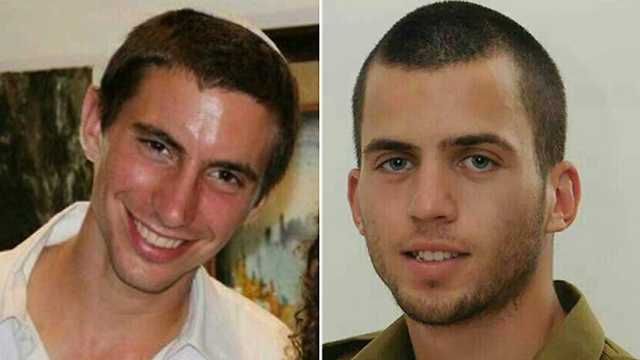Israel stops family visits for 1200 Hamas prisoners in an effort to redeem an Israeli citizen and the bodies of two IDF soldiers.
On Thursday, Israel denied family visits to approximately 1200 Hamas prisoners in order to pressure Gaza’s Islamist rulers to release Israeli citizen Abera Mengistu and return the bodies of two IDF soldiers. The soldiers were killed by Hamas during the 2014 Protective Edge military campaign in Gaza.
Israel’s Prison Service (IPS) declined to comment on the decision.
Hamas Prisoners’ Affairs Ministry rejected the decision, describing it as “punishment” and “a declaration of war against the prisoners.” The Gaza-based terrorist regime pledged it would challenge Israel’s decision “whatever the cost.”
Lt. Hadar Goldin’s family reacted by saying that changing the hostage equation was long overdue.
“For over two years, we have been demanding the Israeli government act to cancel family visits and improved conditions for Hamas prisoners in Israeli jails. The family believes the equation must be changed on the issue of hostages, with pressure put on Hamas to lead it to the realization keeping hostages is a burden, not an asset.” Alongside his comrade Oron Shaul, IDF soldier Hadar Goldin was killed when Hamas violated an internationally negotiated ceasefire during the Gaza War in 2014.
In April, Hamas chief Khaled Mashal demanded that Israel release security prisoners freed during the Shalit deal and later rearrested, as a precondition for negotiating the release of Mengistu and the bodies of Shaul and Goldin.
“One of the obstacles standing before a new deal is the fact Israel is ignoring its commitments,” Mashal said.
A long-standing policy of Gaza’s Islamist rulers is to kidnap IDF soldiers and Israeli citizens and use them as assets to demand that Israel release Hamas prisoners, including those guilty of murdering Israeli citizens.
By: Daniel Krygier, World Israel News




